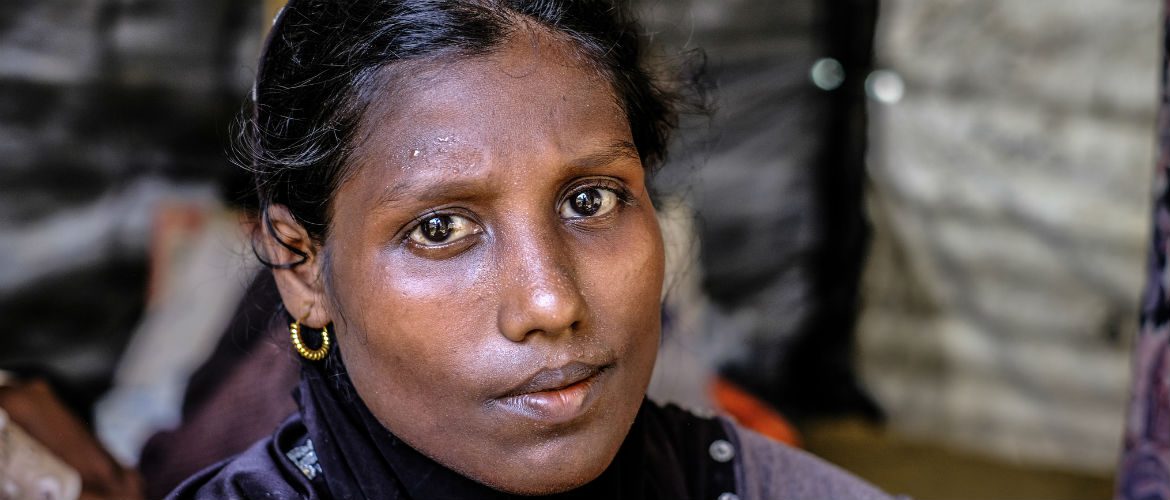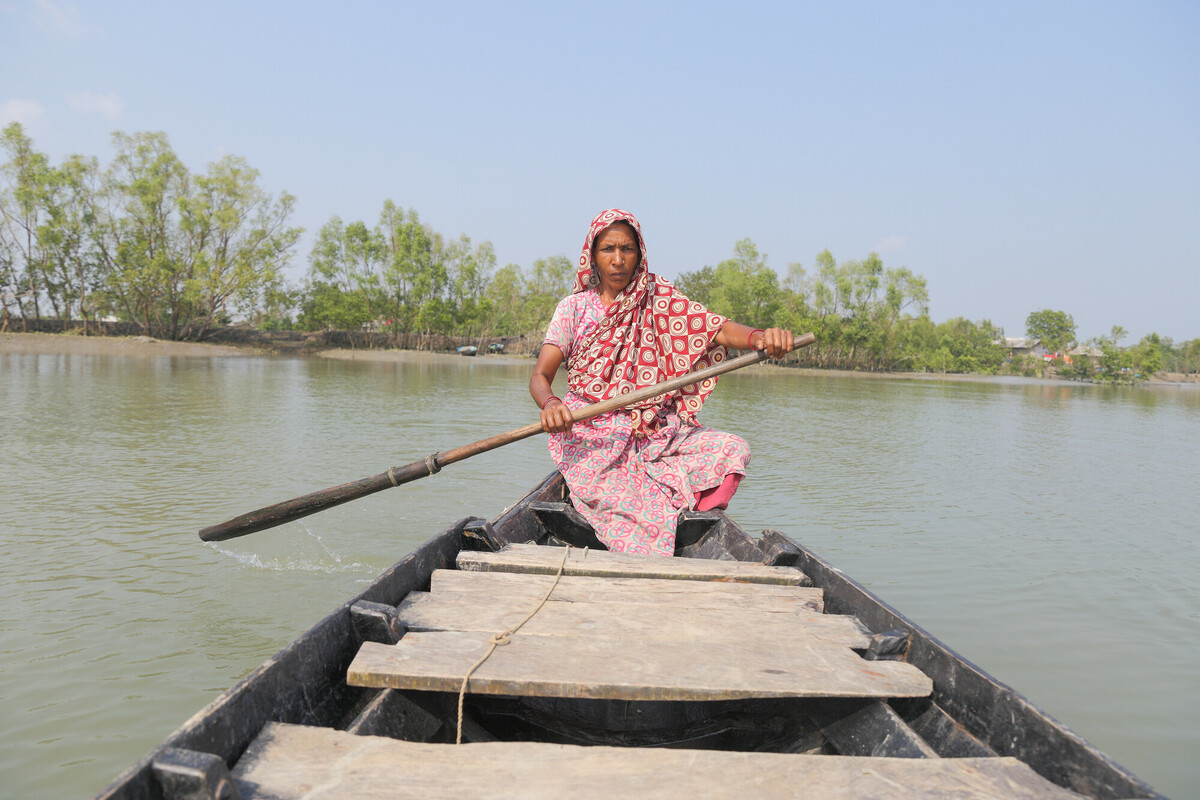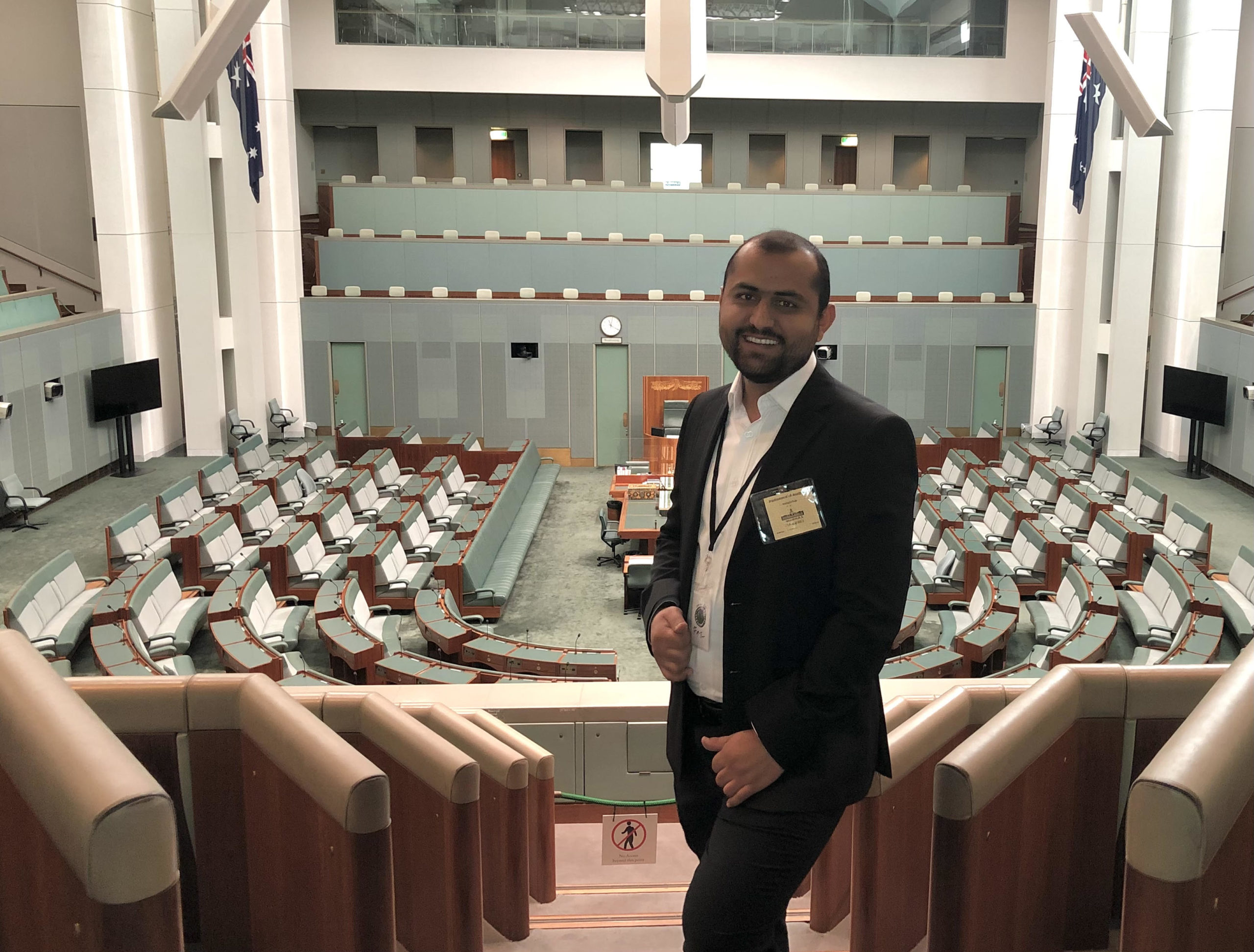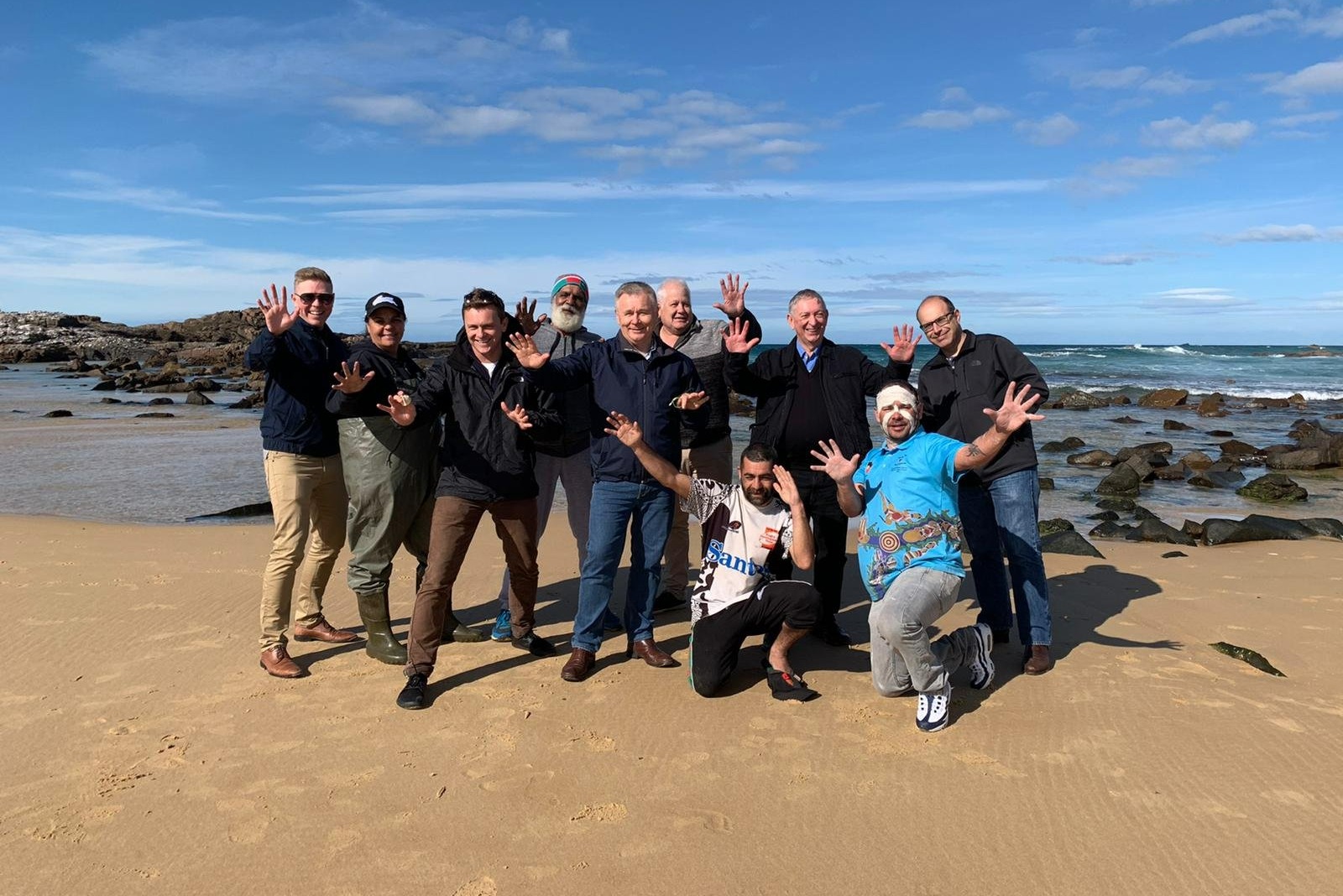Since August 25, over 600,000 Rohingya refugees have crossed into Bangladesh’s southeastern districts. More than half are women, and 60 percent of these are girls under 18. They have faced a treacherous journey across the border from Myanmar.
This story follows Laila*, who is five months pregnant, and her two children.
She arrived in Bangladesh in late September. She spent a night on an island, taking shelter in a local school, before travelling by boat to mainland Bangladesh, her fare paid by locals aiding the refugees.
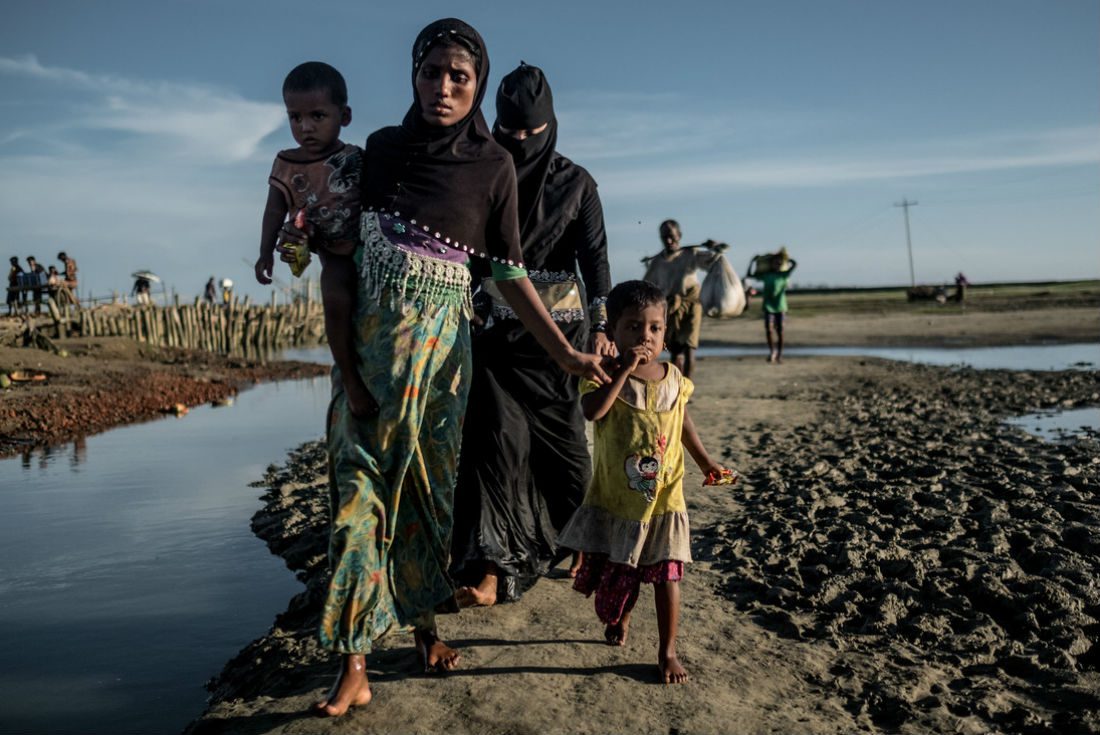
Laila, 18, is pictured with her son, 18-month-old Abdul*, and daughter, two-year-old Jida*. Laila has been living in Balukhali Camp. She is five months pregnant and arrived in Bangladesh by boat with her two young children.
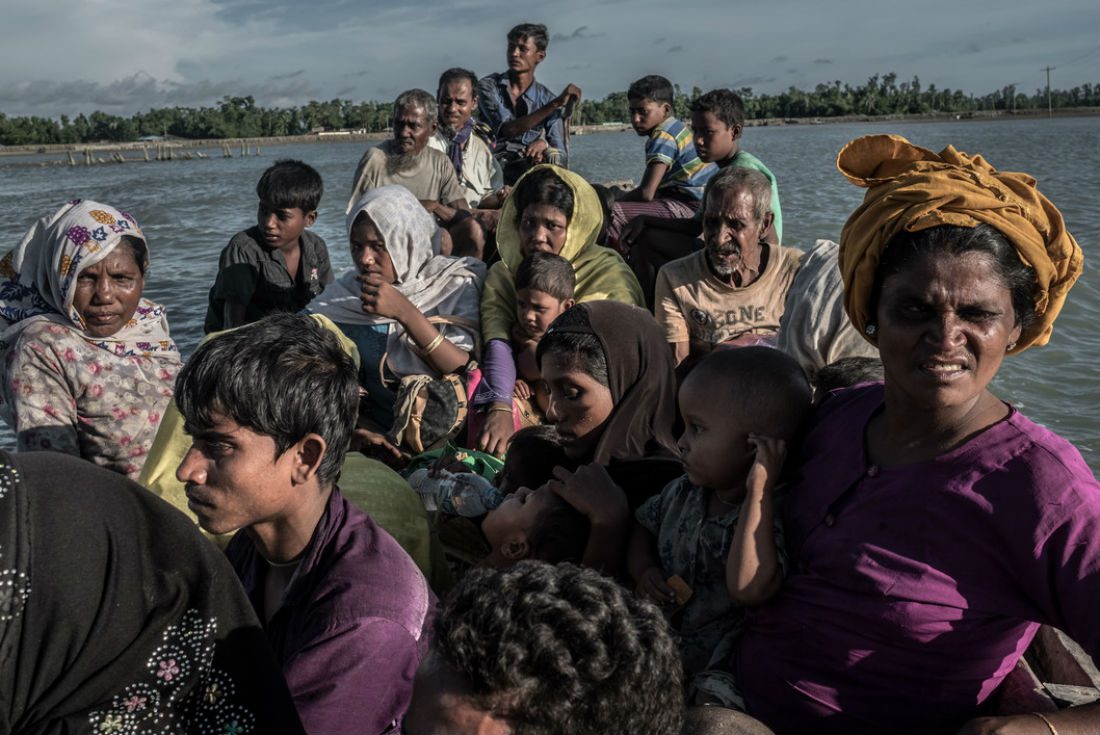
Laila, Abdul and Jida travelled on an overloaded boat to Teknaf, Bangladesh. “When we got into the boat, we were scared as water was getting in. I was scared that it would sink; people were crying. When I was in the boat, I was praying that I will reach the place safely.”
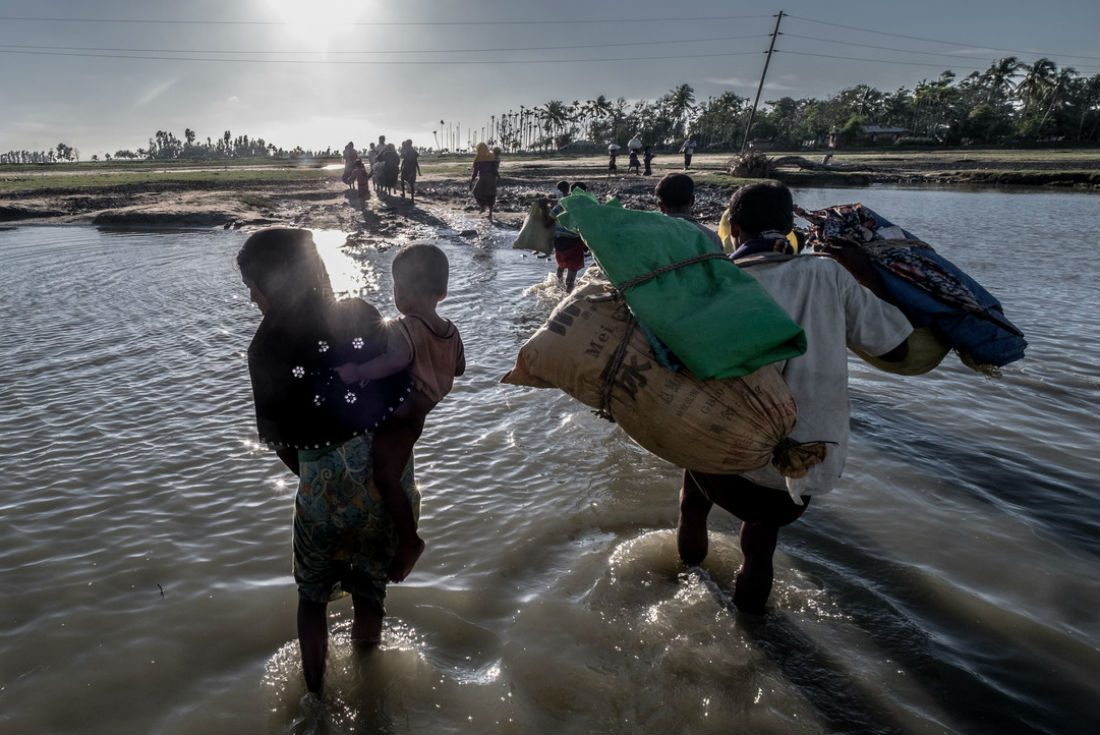
Laila carries her son and daughter to shore. Her husband went missing as she fled. “I don’t know if he is dead or alive … That makes me heartbroken.”
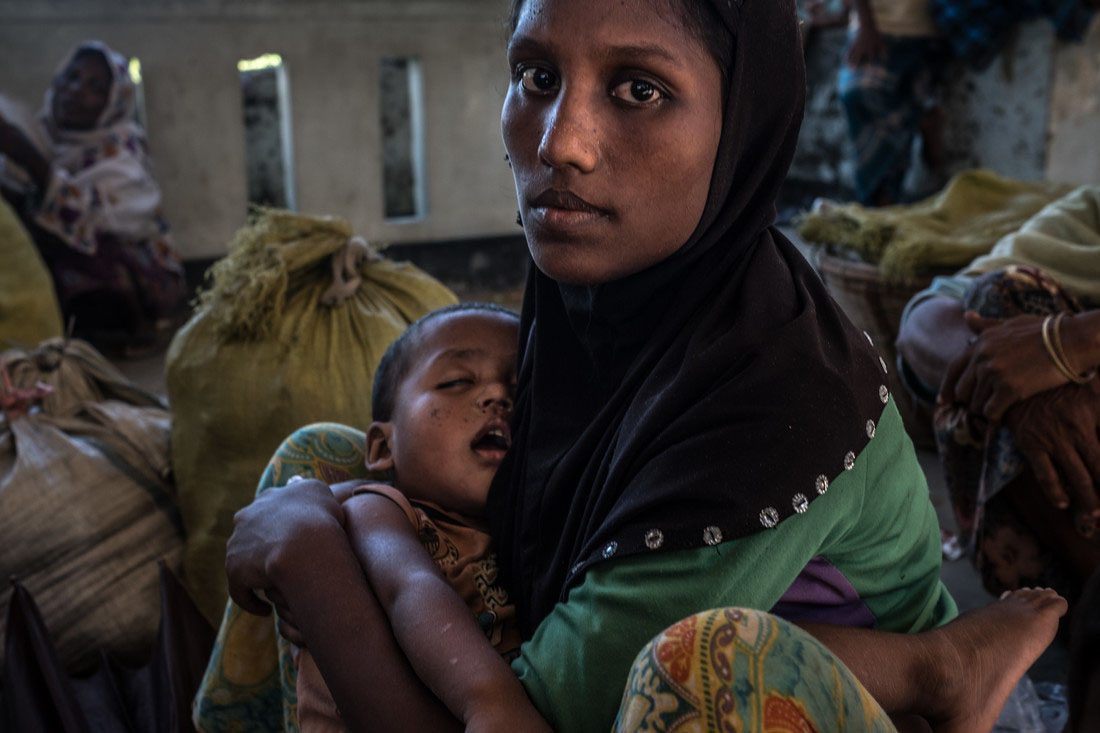
Laila holds Abdul as they wait. They did not bring anything with them. “With two children, and along with other people, we fled and came here. We didn’t even bring clothes. We couldn’t eat. If people gave us food, we ate; otherwise, we were hungry and thirsty.”
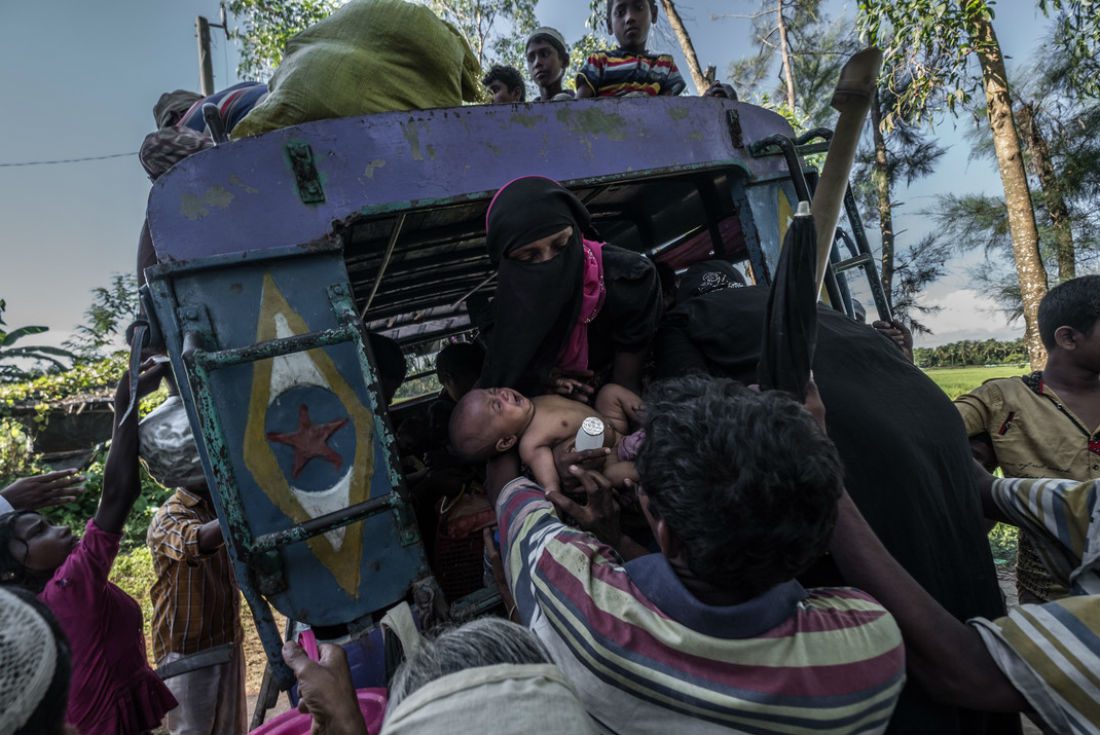
Laila and her children arrive at Balukhali camp late at night. “From the school, they put us in a truck. Then, we had to cross a lake. After that, they put us in another truck. Then, we spent a night in the open field beside the graveyard. After spending a night there, we came to the camp.”
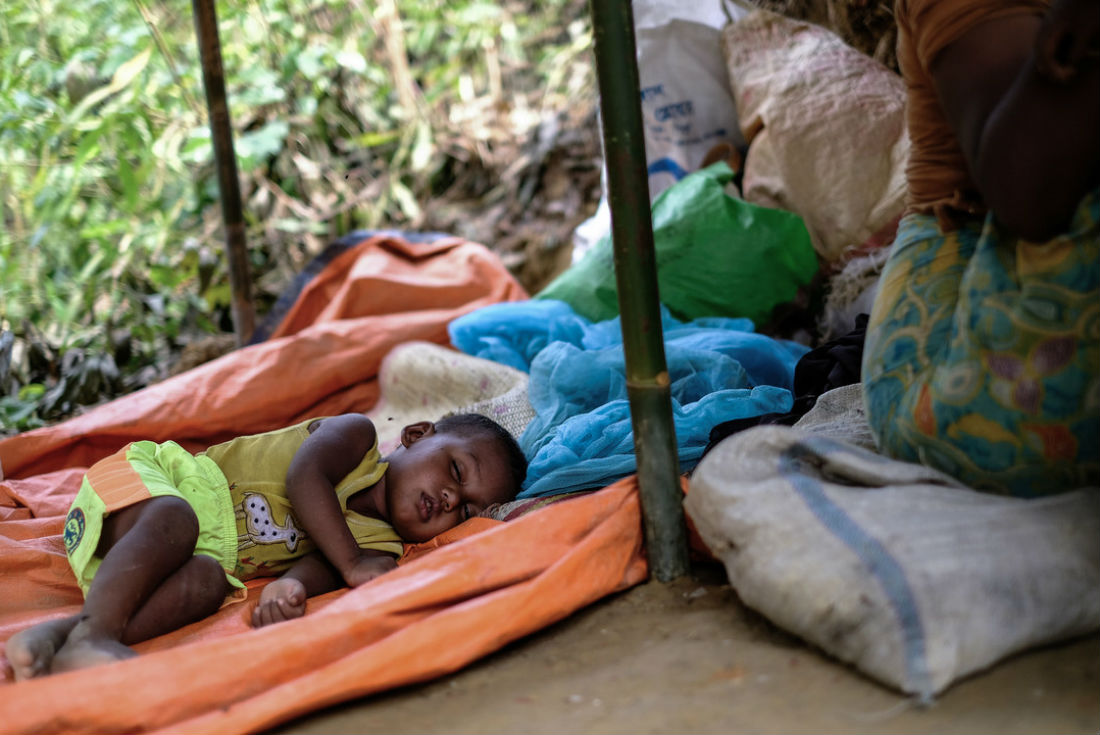
Laila has a small shelter in the camp. To get water, they dig holes. “It is dirty. People go to the toilet here, but as we can’t live without water, so we are drinking it. It is very dirty water. It smells when we go outside. If was a proper latrine, it wouldn’t smell, but going outside like this it smells.”
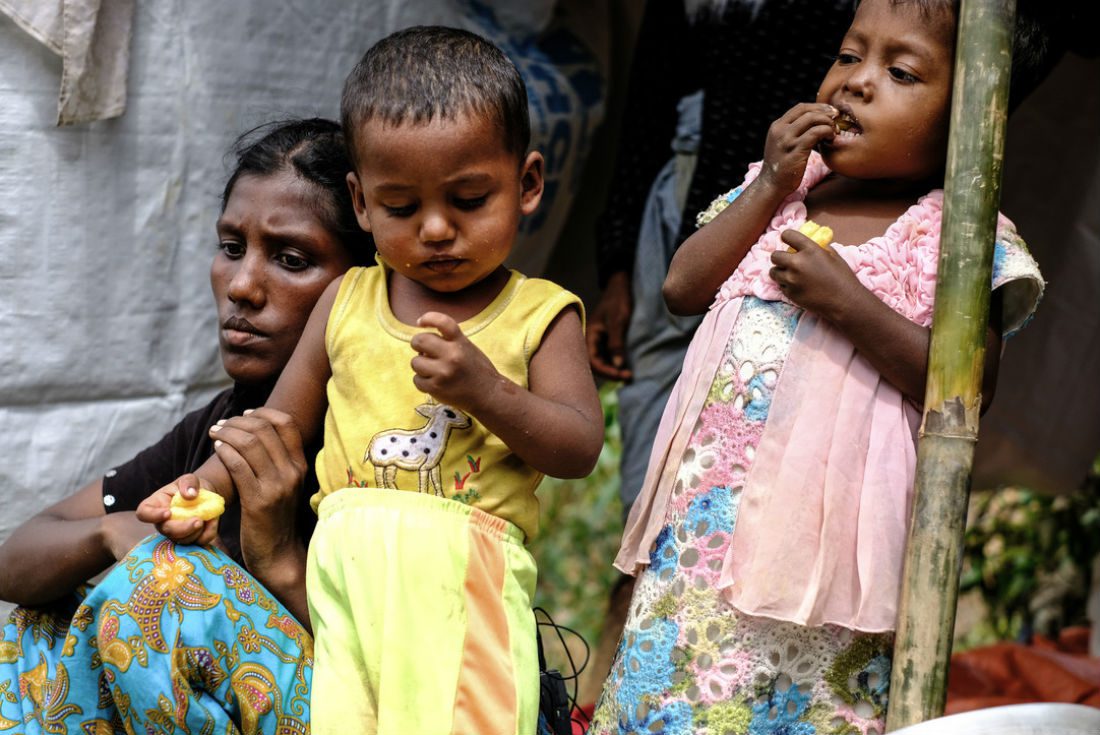
Laila in Bangladesh Laila is pictured with Abdul and Jida. “I have two small children and I am five months pregnant. The children are sick. I worry most about their food. My worry is, I can’t feed them, can’t give them medicine. I can’t send them to school. I want to give education to my children, that’s my hope.”
Watch Laila’s perilous journey
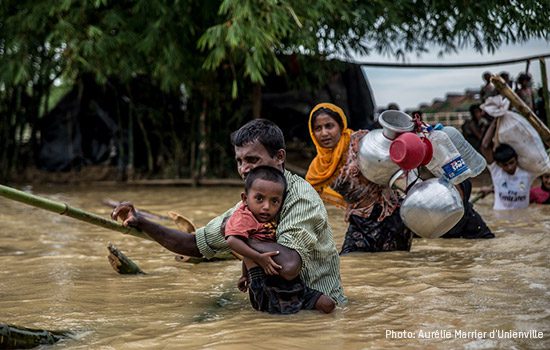
Donate to the Bangladesh Rohingya Refugee Crisis
Your donation is essential to help Oxfam provide access to food, water and sanitation.
